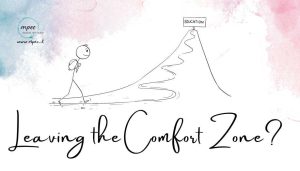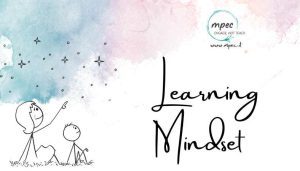Have you ever wondered why, despite years of studying English, immersing yourself in English media like YouTube and Netflix, or even working with foreign colleagues, you still find yourself struggling to speak English fluently? You might believe it’s because you lack the natural talent for languages, or perhaps you think you haven’t found the right learning opportunities. But what if the real reason lies deeper, within the workings of our own minds?
The Paradox of Fear
At first glance, it seems logical to attribute our inability to speak English fluently to external factors: lack of talent, motivation, or opportunity. However, Nobel laureate Daniel Kahneman offers a different perspective, one that delves into the psychology behind our decisions and behaviours. Kahneman, in his exploration of cognitive biases and decision-making, reveals that our brains are wired in ways that often lead us away from rational choices, especially when it comes to learning and using a new language.
When we are surrounded by English yet fail to ‘steal’ vocabulary and enhance our communication skills, the issue isn’t necessarily with the English language itself. Instead, it’s tied to phenomena like loss aversion and prospect theory. Kahneman explains loss aversion as our tendency to prefer avoiding losses over acquiring equivalent gains. This principle is deeply ingrained in our decision-making processes and can profoundly influence our approach to learning English.
What May I Lose If I Speak English?

Hmm. Good question. From a purely rational standpoint – nothing. But hold on a second! We’re not talking rationality here. It’s about our biology and our emotions. And those, we all know, can be far from rational or logical.
Consider this: Your proficiency in your first language, Italian, has brought you considerable success in life. The thought of speaking English represents both a desire and a significant risk.
There’s the fear of losing the dopamine rush that comes from successful communication in Italian, a risk to your reputation as a skilled communicator, and potentially, your business results. These are all perceived losses if you switch to a language in which you’re not entirely confident.
The paradox here is, however, that potential losses do not have the same impact on our behaviours as potential gains. Quite the opposite, actually. Studies demonstrate that for almost all of us, the fear of potential loss outweighs the perceived satisfaction of a gain 2:1 . Yes that’s right. Our terror of loss is twice as strong as our desire to win.
This reluctance to embrace English, despite apparent opportunities to learn and practice, can be attributed to loss aversion and prospect theory. Kahneman’s prospect theory further explains how we evaluate potential losses and gains from a certain reference point, which in this case, is our comfort and proficiency in Italian. Our fear of losing what we have (proficiency in our native language, the dopamine of a successful and fruitful conversation, our professional reputation, to name just a few) outweighs our desire to gain something of equivalent value (hypothetical fluency in English).
Moreover, this scenario is often exacerbated by the negativity bias, another concept Kahneman discusses. We are more likely to recall and be influenced by negative experiences, such as embarrassing attempts at speaking English, rather than the positive or neutral ones. This bias reinforces our belief that we are “really bad at English,” not because of an inherent lack of skill, but due to our focus on negative outcomes.
Risk vs. Reward: A Personal Calculation
Kahneman’s prospect theory posits that individuals evaluate gains and losses relative to a specific reference point, often their current state. For many, the current state is one of comfort and competence in their native language. Venturing beyond this point to learn English involves a recalibration of this reference point, where the potential for loss seems more significant than the gain. It’s crucial to ask, how do we shift this reference point? How can we redefine success in a way that values progress and effort over perfection?
The Role of Negativity Bias
This aversion is compounded by negativity bias, where negative experiences have a more significant impact on our memories and decisions than positive ones. Recall the last time you tried speaking English and made a mistake. Chances are, this memory sticks out more vividly than the times you successfully communicated a point. This bias skews our perception, making us believe we’re inherently “bad” at English, rather than recognizing it as a natural part of the learning process.
Reframing the Narrative
Understanding and acknowledging these psychological patterns is the first step toward overcoming them. It involves a conscious effort to reframe our approach to learning English. Rather than seeing it as stepping into a minefield of potential embarrassments, can we view each mistake as a step towards mastery? Can we shift our reference point from “fluent communicator in Italian” to “brave learner of English”?
Constructive Strategies for Overcoming Loss Aversion
- Small Wins: Celebrate small milestones in your language learning journey. Every new word or correct sentence structure is progress.
- Growth Mindset: Cultivate a growth mindset, where challenges are seen as opportunities to learn and grow rather than threats to our competence.
- Social Support: Engage with a supportive community of learners who share your goals and understand the struggles. Sharing experiences can dilute the fear of individual failure.
- Exposure to Positive Examples: Surround yourself with stories of individuals who have successfully learned a second language. These narratives can serve as a counterbalance to the negativity bias.
The journey to learning English, or any new language, is fraught with psychological barriers that go beyond simple linguistic challenges. It’s a battle against our inherent aversions to loss and our propensity to focus on the negative. Yet, with awareness, strategic approaches, and a shift in perspective, these barriers can be navigated successfully. Remember, the goal isn’t to replace your proficiency in Italian but to expand your horizons, one English conversation at a time.
The Secrets of Learning a Language
The Bibliography and Scientific Basis of Our Approach:
Self-Awareness and Core/Limiting Beliefs
Cognitive Behavioral Therapy (CBT): Introduced by Aaron Beck, this theory suggests that our thoughts (including core and limiting beliefs) directly influence our feelings and behaviors.
Neuroplasticity: Studies like those presented by Doidge (2007) in his book “The Brain That Changes Itself” highlight how our experiences and thoughts can modify the structure and function of the brain.
Prospect Theory : Developed by Daniel Kahneman, this Nobel-prize winning behavioural model identifies deeply ingrained thought patterns that condition our perception of risk, loss and gain. This conditions people with high level of cortisol (CPTSD; Anxiety, Stress, Depression) to subconsciously avoid using the second language.
Emotional Intelligence
Mayer and Salovey’s Model (1990): Defines emotional intelligence through four main abilities: perceiving emotions, using them to facilitate thought, understanding emotions, and regulating emotions.
Emotional Intelligence: This book by Daniel Goleman (1995) popularized the concept of emotional intelligence to the general public, advocating its impact on leadership, success, and personal well-being.
Adult Language Learning
Critical Age Hypothesis: Studies like those by Lenneberg (1967) suggest there is a temporal window for optimal language learning, but subsequent research indicates that adults can still effectively learn a second language through appropriate strategies and motivations.
Bandura’s Social Learning Theory (1977): Emphasizes the importance of modeling, imitation, and observation in learning, including the acquisition of new languages.
Affective Factors in Language Learning: The study by Gardner and Lambert (1972) on motivational orientation highlights how attitudes and motivations significantly influence language learning in adults.
#ApprendimentoLingue #PsicologiaLinguaggio #DanielKahneman #ImparareInglese #PadroneggiareInglese #SuperareBarriere #CompetenzeLinguistiche #FluenzaInglese #PsicologiaLingua #ApprendimentoInaspettato #BiasCognitivi #TeoriaDelProspetto #AvversioneAllaPerdita #BiasNegatività #MentalitàDiCrescita #ViaggioLinguistico #ParlareInglese #SfideInglese #VitaBilingue #AmantiDelleLingue #Linguistica #IntuizioniPsicologiche #CambioDiMentalità #CompetenzeComunicative #Poliglotta #ConsigliStudioInglese #MotivazioneLinguistica #PauraDiParlare #AbbattereBarriere #EsplorazioneLinguistica





